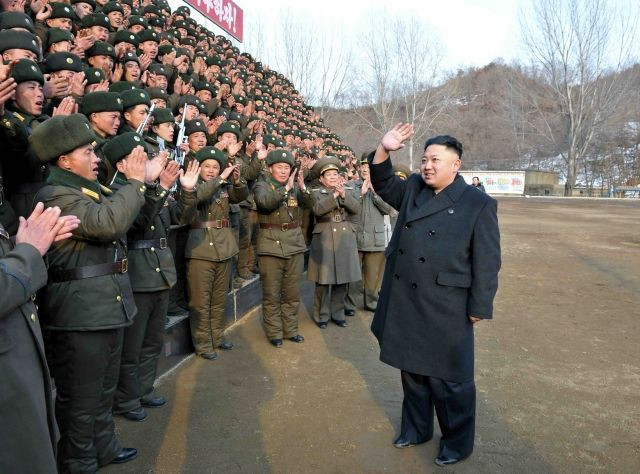North Korean leader Kim Jong Un remains out of sight and state media is still mum about his whereabouts. With speculations over his possible death growing rife, the country is faced with the formidable challenge of addressing a looming succession crisis: In Kim’s absence, who will step in to take over North Korea’s leadership?
While death rumors have been around in recent weeks, it was reported last week that a team of Chinese medical professionals had flown to Pyongyang to attend to Kim Jong Un—suggesting that he could still be alive. However, the fact that the North Korean leader has missed two major political holidays since April 11 suggests that even if he is still alive, his condition is likely grave.
With Kim’s sudden loss, the question of what comes next for North Korea is now paramount. Despite his efficiently consolidated power, Kim Jong Un has not designated an heir, and the oldest of his three children is only 10. Even if he decides to do it now, it might already be too late for a dying Kim Jong Un to anoint someone to take his place.
In an article, author Jieun Baek explained how essential it is for regime elites to rely on the sacred Moutn Paektu bloodline when determining the next ruler of North Korea. “While possible, it is difficult to imagine that a collective leadership will take over the state in the long run in the absence of a successor who is from the Kim family,” he wrote. “This is because the political legitimacy of the state is derived from the mythical narrative that North Korea’s founding father Kim Il-Sung is essentially a god, and his successors will continue to lead the Socialist revolution and protect the nation. North Korea without a successor from the Kim family is like worshippers going to church without a deity to worship.”
While the bloodline principle in North Korean politics is clear, in the case of Kim Jong Un’s family, there is hardly any option. His wife, Ri Sol Ju, is not blood family. His nephews, sons of his brother Kim Jong Nam, whom he assassinated in 2017, are currently in hiding. His other older brother, Kim Jong Chol, was passed over by their father for lacking the toughness necessary to rule.
The only family member who is likely to supersede Kim Jong Un, his sister, Kim Yo Jong, might also not make the grade, as political power in North Korea is deeply patriarchal. Also, much of her power is purely derivative as she lacks the extensive relationships that would be crucial in assuming Kim Jong Un’s position.
Considering how bare the Kim family’s cupboard is, the most realistic option for North Korea is collective leadership, which is likely to be focused on ensuring regime stability and survival. The worst option would be a violent breakdown and power struggle, where military units might take different sides, resulting in a full-scale civil war. In this case, China, South Korea and the United States would likely intervene either to seize weapons of mass destruction or initiate reunification. As these events will not come without resistance from North Koreans, considerable upheaval is definitely in the cards.

© 2025 Latin Times. All rights reserved. Do not reproduce without permission.



